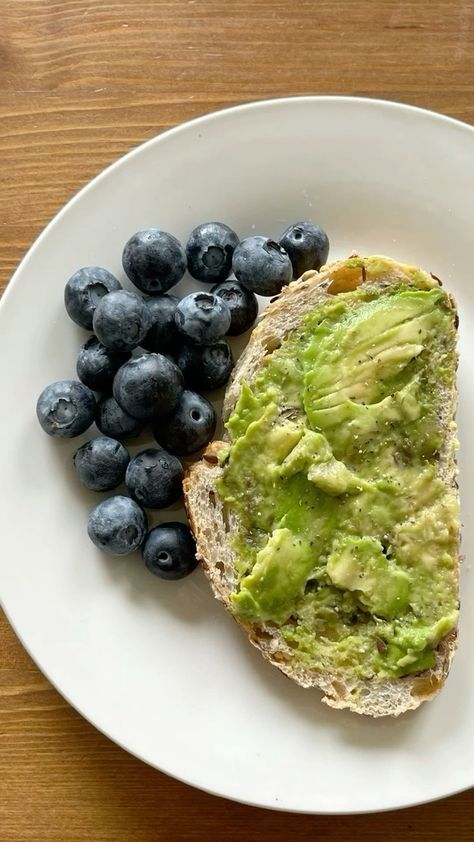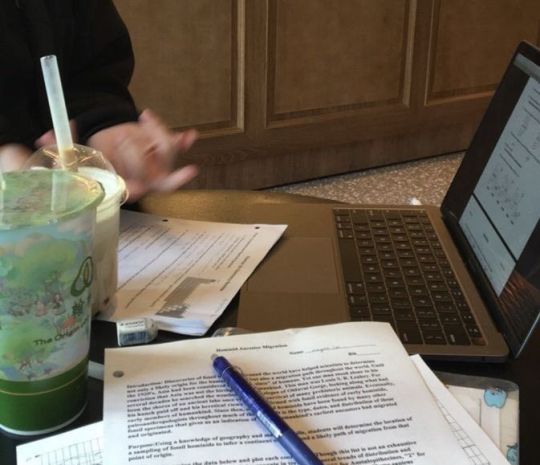18 | she/her | poc | pan | AuDHD | DMs open (don't make me close them again.), asks open | single | 🧿 | has the audacity of a kamikaze bomber | all my rambles, all at once
Don't wanna be here? Send us removal request.
Text
older men will find me older men will find me older men will find me older men will find me older men will find me older men will find me older men will find me older men will find me

Older men will find me older men will find me older men will find me older men will find me older men will find me older men will find me older men will find me older men will find me
424 notes
·
View notes
Text

nothing more slutty than having a waist like this
5K notes
·
View notes
Text
need an older man who actually listens to me and lets me tell him abt my day and is sweet instead of js using me for sexual things :(
8K notes
·
View notes
Text
i want an older man to send me silly pictures like this 🤭


2K notes
·
View notes
Text
its so fucked up how difficult it is to move to another country you shouldn’t need a reason or anything you should be able to show up at the border and be like “the vibes were off back home” and they should let you in
93K notes
·
View notes
Text
Going into 2025 with a crush on the same person since 2023

83 notes
·
View notes
Text
i just think that love letters, like- someone sitting down and taking the time to write down all of their feelings because they need to tell you in a way that lasts longer than them just telling you? god, when
12K notes
·
View notes
Text

This is the magic lucky word count. Reblog for creativity juice. It might even work, who knows.
57K notes
·
View notes
Text
what doesn't kill you makes you weird at intimacy
94K notes
·
View notes
Text



healthy eating as a student
!!never say that healthy eating is unachievable for students. this is a horrible mindset that will no doubt affirm the problem.
healthy eating is important for several reasons, especially to maintain high levels of energy, focus, and overall well-being. first, it supports physical health by providing sustained energy, boosting the immune system, and aiding in weight management. nutritious foods rich in vitamins and minerals strengthen the immune system, helping to fend off common illnesses. a balanced diet also ensures steady energy levels throughout the day, preventing the mid-afternoon crashes often caused by sugary snacks or processed foods.
academically, students who eat well are likely to see enhanced focus, better grades, and consistent energy levels. balanced meals supply a steady flow of glucose to the brain, which is essential for maintaining alertness and concentration during classes and study sessions. a nutritious diet supports cognitive processes, leading to improved academic performance and outcomes.
you cannot live off of two-minute noodles.
now, here are some hacks and strategies to make healthy eating more achievable:
planning and prep
meal planning: take some time each week to plan your meals. this helps you make thoughtful choices and avoid last-minute unhealthy options.
meal planning with roommates: if you live with roommates, organizing a meal plan together can be a fantastic way to share responsibilities and ensure everyone eats healthily. take turns cooking meals, or have a weekly cook-off where each person prepares a nutritious dish.
grocery list: make a list of healthy staples and stick to it when shopping. this can include fruits, vegetables, lean proteins, whole grains, and healthy fats.
batch cooking: prepare meals in bulk on weekends or free days. store them in portioned containers for easy access throughout the week.
healthy snacks: keep healthy snacks like nuts, yogurt, fruit, or cut veggies on hand to avoid reaching for junk food.
budget-friendly options
buy in bulk: items like grains, beans, and frozen vegetables can be bought in bulk and stored for long periods.
seasonal produce: opt for fruits and vegetables that are in season as they are often cheaper and more nutritious.
generic brands: don't shy away from store-brand products; they are often cheaper and just as good in quality.
easy and quick meals
stir-fries: quick to make and customizable with any veggies and proteins you like.
salads: easy to prepare with fresh ingredients. you can add a variety of toppings like nuts, seeds, lean meats, and beans.
smoothies: blend fruits, vegetables, and a protein source like yogurt or milk for a quick and nutritious meal.
oatmeal: a great breakfast option that can be topped with fruits, nuts, and seeds.
pre-made healthy options: utilize pre-made healthy options like salad packs or pre-cut veggies to save time. these can be a lifesaver on busy days when you need a quick and nutritious meal.
utilizing campus resources
dining hall options: if you're looking for healthier options, check out your dining hall. many campuses offer salad bars, whole grain options, and lean proteins.
nutrition counseling: some universities offer nutrition counseling services that can help you develop a personalized eating plan.
i hope this was helpful, and that you take something away from the post! 🫶nene
164 notes
·
View notes
Text
I wanted to leave a comment but I hit the max word limit… oopsies. Figured I'd just make a post since I'd already typed out so much anyway. I'd like to preface by saying that this is the process that worked for me. I've never taught my instrument, but I am a guitarist with ADHD, so take from that what you will (more detailed and in-depth explanation and suggestions under the cut).
TL;DR:
ADHD students learn best with songs they love, not “course-approved” songs.
Start by letting them pick their favorite parts of songs to learn first.
Allow them to practice along with the original track instead of forcing a metronome early on.
Simplify hand independence by teaching left and right hands separately before combining them.
If nothing works, consider whether piano is the right fit for them.
Okay so what helped me, with and without a teacher, was learning songs—not just any songs, but songs I like. I remember the teacher I made the least progress with was a teacher who tried to force me to learn songs from "the book". It contained songs that were BARELY in the genre I like. That did absolutely nothing. I would not practice them at home. And I dreaded getting ready to go to my lesson.
I know technique is important, but as people who perpetually crave dopamine, we need to be interested in what we’re learning to even consider learning the foundational tools that will make us better. It may feel weird, but you have a student with an entirely different mental process, and any courses or lesson plans you’ve created will likely need to be revised—or even completely ignored.
My favorite guitar teacher worked at a music school that had its own course and guidelines, with specific songs and exercises to learn at specific times. He realized very quickly that that could never work on me. Once we stopped following the course, we made as much (or even more) progress as compared to other students he was teaching who were following the course.
Suggestions
Start with their music taste.
Ask your student to make a playlist of songs they like to listen to, even if they’re not piano songs. This will give you a general idea of what they enjoy. If these songs have piano parts—or can be transcribed to piano in any way—those will be the songs they’ll actually want to learn.
Let them pick their favorite parts.
We don’t like learning entire songs when we’re not even sure we can play our favorite part. Let them choose what they want to learn first, the work on the song in small sections, going from the most to least interesting parts.
Practice along with the song.
Let them play along with the original track. YouTube is great for this because of the playback speed option (especially since you can now customize speeds on the mobile app).
Be cautious with the metronome.
If they're reluctant to use the metronome, especially in the early stages, don't force it. It sounds counterintuitive, but let them know the importance of the metronome, and then if they don't want to use it in the first few months - or even the first year - do. not. try. to. force it. Cause that's all that will happen. You'll try and it won't work.
At some point a teacher actually pointed out to me that I have a great internal metronome, and after that, I've actually observed that MOST musicians with ADHD (especially guitarists (but most ADHD musicians are guitarists anyway)) have amazing internal metronomes.
Trust me, we know when our timing is off. Yes, we may not be as accurate as a metronome, but we know. We're hyperaware of our playing, and sometimes, especially in the early stages when we don't have muscle memory of how to play period, the metronome can be really overstimulating.
Learning Challenges and Strategies
When I was learning piano, one of the biggest issues was that sheet music confused the HELL out of me. The grand staff is a genuine PAIN IN THE ARSE to learn, and it can get super overstimulating.
To help:
Teach the left-hand notes and right-hand notes separately.
Slowly put them together and start practising with the song.
Hand independence is going to frustrate them to no end, but once they start to get it, they're going to be more engaged.
For exercises, sprinkle them in as needed when you stumble into new techniques from songs they’re learning. For example:
Week 3: You learn song A, and at some point you see a good opportunity for a technique lesson for Technique 8. Let week 4's lesson be about Technique 8, and tell them that in week 5, you will be learning the rest of song A with the incorporation and use of Technique 8.
When to Pivot
My biggest advice would be that if nothing you try works (including and excluding my advice), they might need a different teacher, or honestly, a different instrument. Most people with ADHD LOOOVE music, but depending on their ADHD type or even just their personality, piano might not be their instrument.
It's possible they'd want an instrument with a simpler sheet music system (like tablature, or an instrument in only one clef).
Maybe they need an instrument that they can move around with or is more versatile across genres (for example, guitar, bass guitar, or drums).
Maybe they'd like an instrument that generally requires more physical movement but still has flow (drums or a different percussion instrument).
Maybe they're more of a vocalist
It could even just be that the type of instrument is wrong (some people are more string instrument players, others are more into brass instruments).
Even if they've said they want to learn piano, that doesn't mean it's the only instrument they want to learn and maybe it's time to pivot to something different.
That's my little rant! I hope it helps in any way, and I wish you luck in your attempts to share the magic of being a musician.✨💗
I need help from piano teachers!
So I've read many posts about teaching kids with adhd, tried many different approaches and methods. And these methods work most of the time, and I try to be creative with my lessons. I have flashcards, had specific balloons for practicing hand/arm movements, there are rhythm exercises, "treasure hunting" for notes, singing together, breaking down tasks to very small steps, etc. There's always positive reinforcement, I have different types of stamps/stickers as rewards after completing a challenge. I always keep in mind that every student is different and they learn at a different pace. And usually my neurodivergent students like my lessons, and manage to improve their skills and they love music.
However, with one student, nothing seems to work. Breaking down learning pieces to smaller, easier segments didn't work because it bores them, but focusing on more things at once doesn't work either. Giving positive feedback doesn't seem to have any effect. The parents asked me to be more strict because only that works, but that stopped working too after like two lessons. If they're bored they start hitting and kicking the piano, and I don't know what to do.
So... Does anyone have an idea on what to do? 🥺 I would be incredibly grateful.
31 notes
·
View notes











